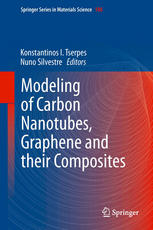

Most ebook files are in PDF format, so you can easily read them using various software such as Foxit Reader or directly on the Google Chrome browser.
Some ebook files are released by publishers in other formats such as .awz, .mobi, .epub, .fb2, etc. You may need to install specific software to read these formats on mobile/PC, such as Calibre.
Please read the tutorial at this link: https://ebookbell.com/faq
We offer FREE conversion to the popular formats you request; however, this may take some time. Therefore, right after payment, please email us, and we will try to provide the service as quickly as possible.
For some exceptional file formats or broken links (if any), please refrain from opening any disputes. Instead, email us first, and we will try to assist within a maximum of 6 hours.
EbookBell Team

5.0
58 reviewsA large part of the research currently being conducted in the fields of materials science and engineering mechanics is devoted to carbon nanotubes and their applications. In this process, modeling is a very attractive investigation tool due to the difficulties in manufacturing and testing of nanomaterials. Continuum modeling offers significant advantages over atomistic modeling. Furthermore, the lack of accuracy in continuum methods can be overtaken by incorporating input data either from experiments or atomistic methods. This book reviews the recent progress in continuum modeling of carbon nanotubes and their composites. The advantages and disadvantages of continuum methods over atomistic methods are comprehensively discussed. Numerical models, mainly based on the finite element method, as well as analytical models are presented in a comparative way starting from the simulation of isolated pristine and defected nanotubes and proceeding to nanotube-based composites. The ability of continuum methods to bridge different scales is emphasized. Recommendations for future research are given by focusing on what still continuum methods have to learn from the nano-scale. The scope of the book is to provide current knowledge aiming to support researchers entering the scientific area of carbon nanotubes to choose the appropriate modeling tool for accomplishing their study and place their efforts to further improve continuum methods.